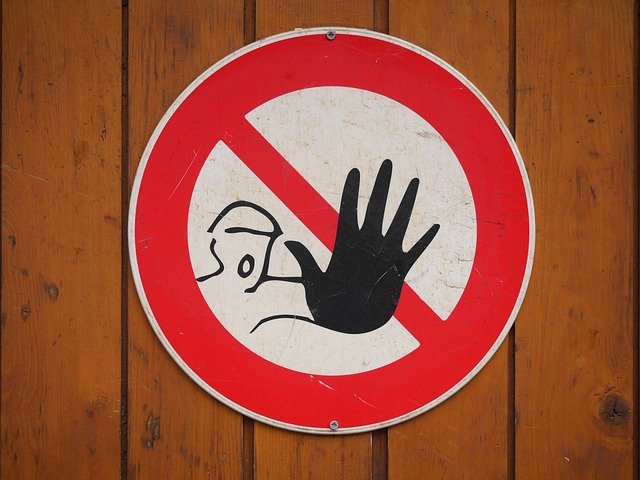Hello, and welcome to Part II of my article on red flags to watch out for when you’re in job-hunting mode. In Part I, we discussed the red flags you might encounter when you’re perusing a job posting from a potential employer. If you missed Part I, or if you’d like to revisit the key points, click here. Today, let’s move on to the job interview itself, and examine a few red flags that might (and should) give you pause: You wait and wait (and wait) in the lobby (or on Zoom) for your interview. If you find yourself waiting for more than 20 minutes after your interview was scheduled, your spidey senses should start to tingle. Either the hiring manager’s disorganized, or the hiring process itself is disorganized, or the entire company’s disorganized—and what’s more, “the powers” are allowing it. An organization should be putting its best foot forward when a candidate arrives for an interview, and sticking to the interview schedule is just one way they can communicate respect for the interviewee. Unless the interviewer arrives with a sincere apology, preferably coupled with an exciting, “I just saw a baby unicorn!” type of story, proceed with caution when considering employment with this organization. It’s clear that the interviewer hasn’t done his/her homework. If the interviewer sits down, pulls out your resume and cover letter (or opens it up on their tablet) and then takes up your valuable time reading what they should have read before you got there (or worse yet, if they don’t even have your materials with them—this happened to me once), be on your guard. Again, this signals disorganization and disrespect. You want the interviewer to already know the basics of your background, and to ask more advanced questions that further their understanding of you. The interviewer has a negative attitude—toward anything. This should be a zero-tolerance situation: if the interviewer says even one disparaging thing about the organization, the position you’re applying for, or the other company employees (especially the one you might be replacing—talk about a cheap shot), beware. The interviewer’s job is to determine whether you’re a good fit as a candidate, to represent the company positively to all interviewees, and—this should go without saying—to refrain from using the interview as a complaint session. The interviewer is too quick to hire you. This is not speed dating! If the interviewer fails to ask at least a few interested, engaged questions about you, your background, and the skills you bring to the table, it probably means they’re just “trying to put butts in seats as fast as we can,” as one HR manager I know once worded it. This sort of practice implies high turnover (and high employee dissatisfaction) in whatever position you’re applying for. The interviewer is vague about the job, the salary, or the benefits. Minimally, the interviewer should be able to address any questions you might have about the specific job you’re interviewing for, plus any general questions you might have about the organization itself. If not, it’s entirely possible that they’re trying to hide something from you about the job or the company and its policies—like they pay only once every three months, or they’re going to require that you travel more than the job description states. The interview should be conducted with clarity and transparency, and by the time you leave, all your questions should be clearly and honestly answered. OK, let’s say that you go on a job interview, and one or more red flags pop up. What should you do? First, there’s nothing wrong with asking clarifying questions during your interview. If you notice a red flag during the interview, feel free to mention it. For instance, using one of the above examples, if the interviewer were to try and hire you too quickly, you might ask about the rate of turnover for the job you’re applying for. Furthermore, if the interviewer mentions something—anything—that concerns or confuses you, speak up! What’s the downside, after all? The only “consequence” to your question should be that you receive an appropriate answer. So, if the interviewer alludes to the fact that you might need to pull double shifts from time to time, ask for an approximate frequency of this occurrence. Or if she/he says they’ve been trying to fill the position for the past year and a half, you might ask why it’s been so difficult to find the right candidate. You have every right to ask a question, assuming it relates to the job or the company. It’s possible that the interviewer may dance around the question or refuse to answer it altogether, but that would tell you something in itself: the organization may be less than open and transparent. Next, after the interview, do a little reflecting. Ask yourself just how “red-flaggy” the red flags really are, and whether they truly matter to you. For instance, if you’re simply looking for a temporary summer job with the local Parks and Recreation Department, you can probably put up with a few minor red flags. However, if you’re seeking a career position with a company you intend to stay with, red flags—even the minor ones—may be of greater concern (and negative personal consequence) to you. Finally, don’t overlook a valuable ancillary resource. Some of your questions don’t even need to be asked and answered in the interview. Instead, “ask” Glassdoor, Blind, FairyGodBoss, or a similar site about your prospective employer. It’s amazing what you can learn about an organization from its anonymous employee reviews. That’s it for today. I hope you found value in this two-part series. Please write to me and let me know which tips were most useful—your feedback helps me better understand how to serve my readers, clients, and audiences. I’ll see you soon.

